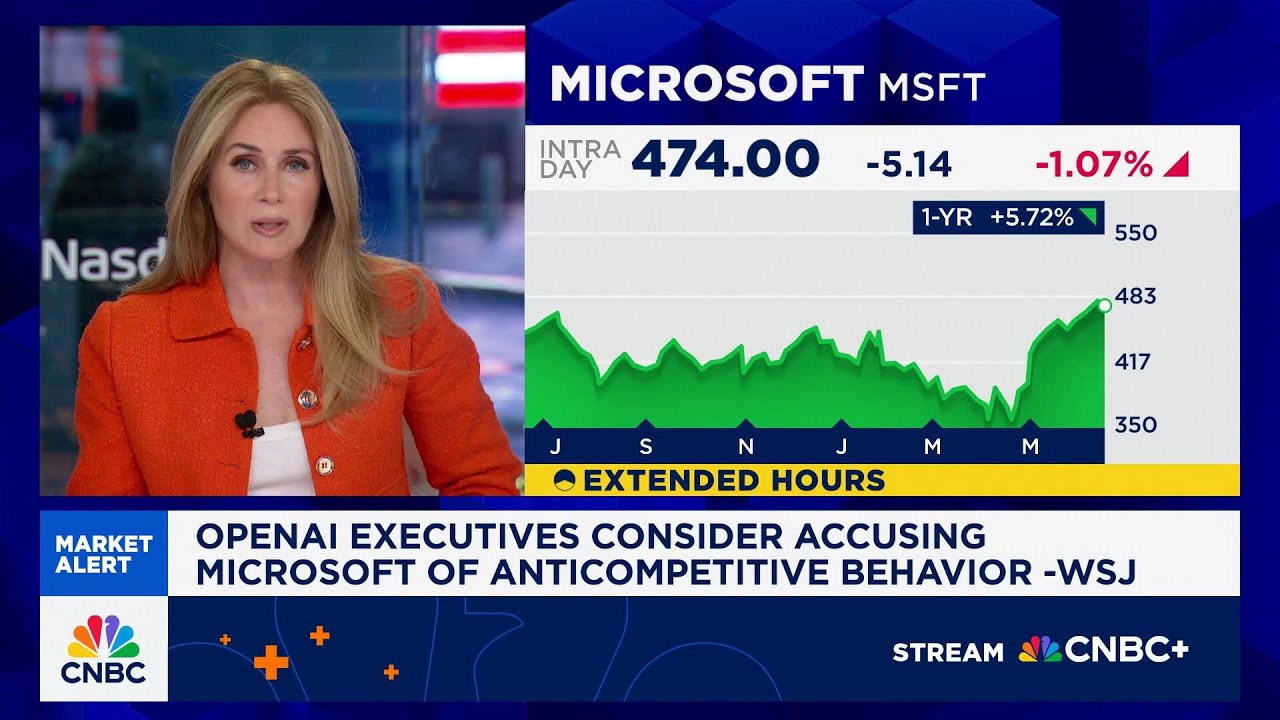OpenAI and Microsoft are facing tense negotiations over OpenAI’s transition to a for-profit entity, with disputes arising around Microsoft’s access to OpenAI’s intellectual property, including the Windsurf acquisition. Despite considering serious accusations of anti-competitive behavior, both companies remain publicly committed to their partnership and hope to resolve their differences to continue collaborating.
The partnership between Microsoft and OpenAI, once seen as a model collaboration in the tech industry, is reportedly facing significant challenges. According to a Wall Street Journal report highlighted by CNBC Plus, negotiations between the two companies have become increasingly difficult, particularly around OpenAI’s plans to transition from a nonprofit to a for-profit entity. The tension has escalated to the point where OpenAI executives have contemplated accusing Microsoft of anti-competitive behavior, a move described as a “nuclear option” that could irreparably damage their relationship.
One of the core issues in the dispute involves Microsoft’s access to OpenAI’s intellectual property, specifically concerning a coding company called Windsurf that OpenAI is in the process of acquiring. OpenAI is reportedly reluctant to grant Microsoft access to Windsurf’s technology, which has added another layer of complexity to the negotiations. This reluctance underscores the growing friction between the two companies, despite Microsoft’s long-standing role as a key partner and investor in OpenAI.
The financial stakes in the negotiations are high. OpenAI’s conversion to a for-profit company requires Microsoft’s approval, and this decision must be finalized before the end of the year. The timing is critical because OpenAI needs to secure this approval to retain approximately $20 billion in funding it has raised from external investors. The outcome of these talks will significantly influence the future ownership structure and operational dynamics of OpenAI.
Despite the reported tensions, both companies issued a joint statement to CNBC expressing optimism about their ongoing collaboration. They emphasized their long-term productive partnership and the successful development of AI tools that have benefited a wide range of users. The statement conveyed hope that the two organizations would continue to work together and build on their achievements for years to come, suggesting that negotiations are still active and a resolution may be possible.
In summary, the Microsoft-OpenAI relationship is at a critical juncture, with high-stakes negotiations centered on OpenAI’s shift to a for-profit model and concerns over intellectual property access. While the situation is tense and could potentially lead to a major fallout, both parties remain publicly committed to their partnership. The coming months will be crucial in determining whether they can navigate these challenges and maintain their collaboration in the rapidly evolving AI landscape.
